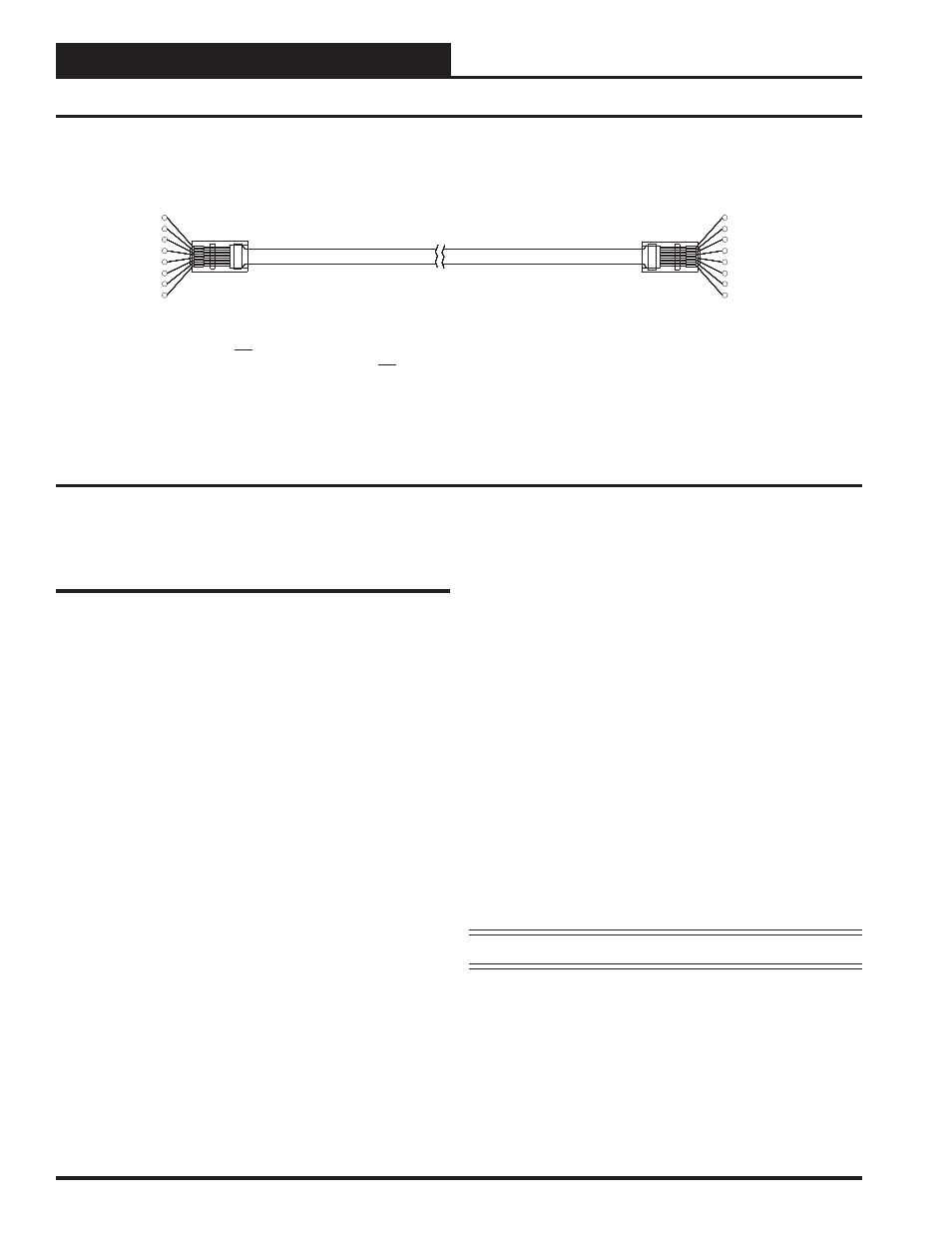Appendix a & b, Pt-link ii lon, Technical guide – Orion System PT-Link II LON User Manual
Page 26: Pt-link ii interface 26, External interface files (xif files)

PT-Link II LON
®
Technical Guide
PT-Link II Interface
26
Use the standard EIA/TIA color code for "CROSS OVER CABLE" as shown.
It is
the same as a standard Cat 5 patch cabling. The outer cable jacket should
Be "Orange" in color. This is
a straight thru pin 1 to pin 1 cable.
not
not
1
2
3
4
5
6
RJ-45 Connector as viewed
from the bottom side
8
7
6
5
4
3
RJ-45 Connector as viewed
from the bottom side
Brown/White
White/Brown
Orange/White
White/Blue
Blue/White
White/Orange
White/Orange
Orange/White
White/Green
Blue/White
White/Blue
Green/White
Figure 25: RJ-45 8P8C Cable for WattMaster Cross Over Networking - WattMaster Part #HZ000136
Appendix A & B
External Interface Files (XIF Files)
At start-up the PT-Link II LON creates an external interface fi le (XIF)
called fServer.xif based on the information contained in the PT-Link
II LON’s confi guration fi le (confi g.csv). The PT-Link II LON’s con-
fi guration can be changed by uploading and editing the confi g.csv
fi le; therefore, the XIF fi le must be obtained by uploading it from the
PT-Link II LON.
The recommended procedure for obtaining the XIF fi le for the PT-Link
II LON is to upload it. Remember that this XIF fi le will change when-
ever the confi guration fi le has been changed and downloaded and the
PT-Link II LON restarted. The following are the steps to extract the
external interface fi le (XIF) from the PT-Link II LON:
1.) Start RUINET application.
2.) Select Fieldserver option
<1>
(this step may be skipped
when application auto-detects PT Link).
3.) From
the
RUINET Main Menu, type – Data Array
Overview.
4.) You should see 2 array items that are labeled wattmstr-
dump and wattmstr-stats. Ignore these.
5.) You should see 2 additional arrays for the controller
connected.
Example: DA_C162_I0 and DA_C162_I0b.
5.1.) The “b” at the end of the Data Array Name indicates
that it is a mirror array. You can ignore these.
5.2) Verify that your controller is visible or the XIF will not
be generated.
6.) After connection has been verifi ed, you can
now exit to the RUINET Main Menu by pressing
.
7.) Type
– Upload Confi guration.
8.) Type
to select other fi les.
9.) If
prompted,
press any key to continue.
10.) Type
– Remote Filename.
11.) Type
.
12. You should now see the name fserver.xif in the column to
the
right.
13. Type
to upload the XIF fi le.
14. Once
fi nished, you will have an .xif fi le available in the
same directory as the RUINET executable fi le you were
running
from.
WARNING:
For easier confi guration, set the unit address to 1.
